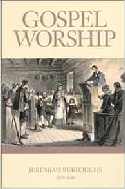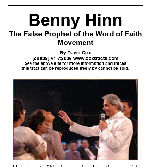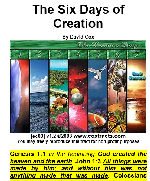Ads
The difference between Abuse and Mistakes is an article on separating a mistake that some pastor makes versus pastoral abuse, or a false prophet.
In consideration of the relationship between Pastor and church, we can see a lot, and I mean a lot of bad stuff out there that is actually happening. We should not “take a back seat” or be quiet about these abuses and evil workings of what essentially are false prophets. We should denounce them, and teach our people to recognize them as soon as possible, and get out of any church or ministry where they see them happening.
But we must be careful, because sometimes Satan uses even a rejection of abuse to mess up people. The Bible clearly plants the idea of a leader in the local church, using the terms pastor or bishop (overseer). Sometimes we understand that this leader is “an elder”, as if that is the group from which he comes. He is qualified to be pastor/bishop because he is an elder.
Contents
To see biblical arguments on establishment of Pastor/Bishops and elders
Who are the elders, pastors, and bishops -Cox
Related Tracts:
Ch18 Supporting your Pastor
ch19 Marks of a False Prophet
ch22 Pastorless Flocks
ch38 Recognizing a good pastor
ch41 The marks of a bad minister
ch42 Destitution of Pastor
ch43 Time to leave your church?
ch45 Grading a Bible Teacher
ch49 The Biblical Pastor: The Biblical Duty
ch51 Cowboys versus Shepherds
churchplantingworkshop.com
Things that ruin a Church: Dominating, Controlling, Manipulating Dictator-Pastor
Warning Signs of a Bad Pastor
Ministry Leadership
In these works (above) I talk about different aspects of the biblical office of pastor.
The difference between Abuse and Mistakes
But as we study our Bibles, we find a large number of “mistakes” by God’s leaders, from Moses striking the rock to David’s sin with Bathsheba, to leading Israel to worship false gods. While God does not approve any of that, God chastises the servant that does those things, we must understand that nobody is perfect, and everybody makes mistakes some time or another in their lives, and this includes pastors.
So what is the difference between abuse and mistakes? Simply put the spirit of the man. Let’s look at Abraham, the servant of God that is held up in Scripture as exemplifying faith as God wants it in us. Was he perfect? No. But he did respond with time to his errors. By respond, I would identify some kind of identification of the error, remorse or repentance, and a setting of things good with God after that.
King David sinned with Bathsheba, but his heart was burdened over that, and when Nathan the prophet presented the parable of a rich man stealing a poor man’s only lamb for a wayfaring visitor’s midnight meal, David responded with remorse in his heart.
I do not know exactly where the Scripture disqualifies a servant totally after a mistake. I do not see a very distinct line here.
But I do note that most of the false prophets today teach a lot of things that simply is not in Scripture, or at best twisted the intended scriptural meaning into something that is not.
A Teachable Spirit – The difference between Abuse and Mistakes
Perhaps a very good element in a good pastor that just made a mistake is the quality of teachableness. It takes a lot of a leader to change his views. That is normal. If he flipped and flopped at every wind of doctrine, then he should not be your leader. I have seen ministers who were against speaking in tongues and preached very good sermons on that topic. Then they “saw the light” and now they are for tongues speaking. In one case in Mexico, even the preachers own deacons confronted him with his own sermons against it, and you saw an unteachable man. Stubborn, hell bent on going into false doctrine.
Having a Friendly Spirit
1 Timothy 3:3 Not given to wine, no striker, not greedy of filthy lucre; but patient, not a brawler, not covetous;
To me, the Spanish Bible has “amable” or being friendly in his spirit.
2 Timothy 2:24 And the servant of the Lord must not strive; but be gentle unto all men, apt to teach, patient,
When we examine the ministries and history of these ministries for men who are false prophets, we find that they are basically contentious people. They know what they want and they use people to get what they want. The real searching of Scripture for truth is absent in each one of their teachings, yet every one will pretend that they are greatly involved in that very activity.
When you look at how sensitive they are to infractions of God’s morality in their own lives and ministries, and what goes on under their leadership and administration, you will find they just don’t care. If you dislike what is going on, leave. But they will black ball you to taint anything you say after you have a run in with the pastor.
This mean-spirit is very much a sign of abuse, not an honest mistake. Revenge and retaliation are the trademarks of a false prophet.
More Articles on Abusive Churches
- The difference between Abuse and Mistakes
- Spiritual Abuse and Why Are Toxic Leaders Allowed to Remain in Power So Long?
- Signs of Abusive leadership #2
- Signs of Abusive leadership #1
- Recovering from Churches that abuse Exiting #4
- Enroth – Recovering from Churches that Abuse
- Comments on Recovering from Churches that abuse Chap #1

Burroughs Gospel Worship 14 chapters (263 pages) which are each a sermon on how to properly worship God. (format PDF)
“Jeremiah Burroughs’ Gospel Worship has greatly influenced my understanding of biblical worship. It is one of the most important books I have ever read.”
–R.C. Sproul
Download: Burroughs Gospel Worship.






